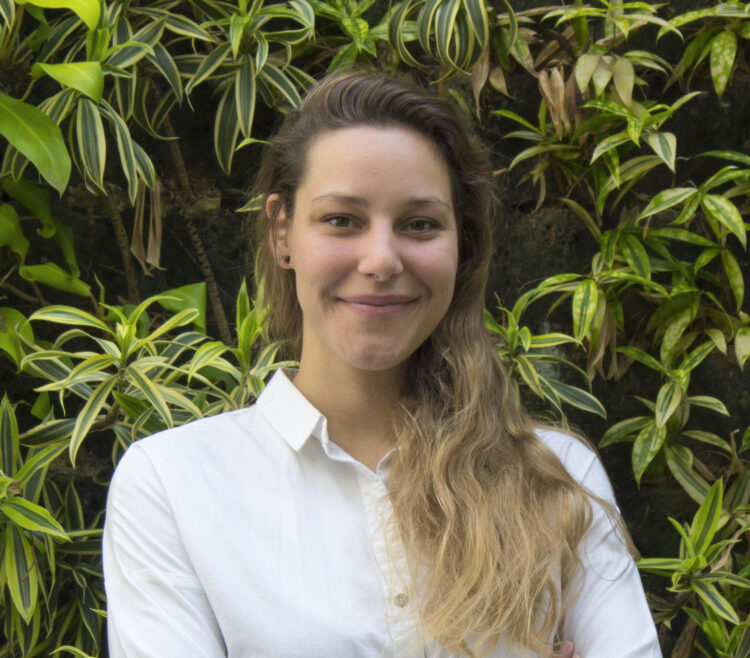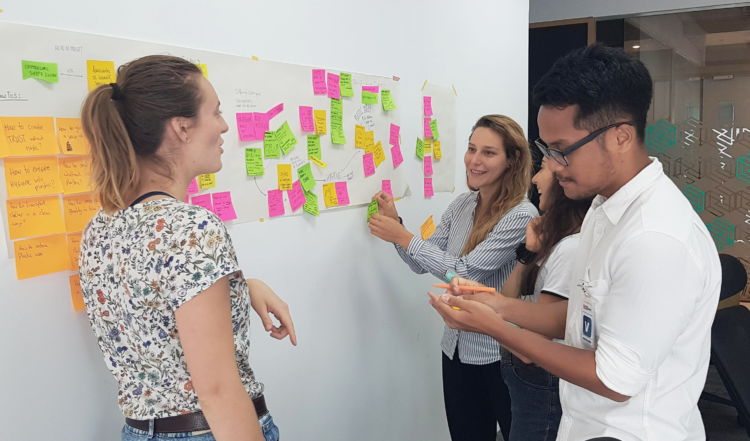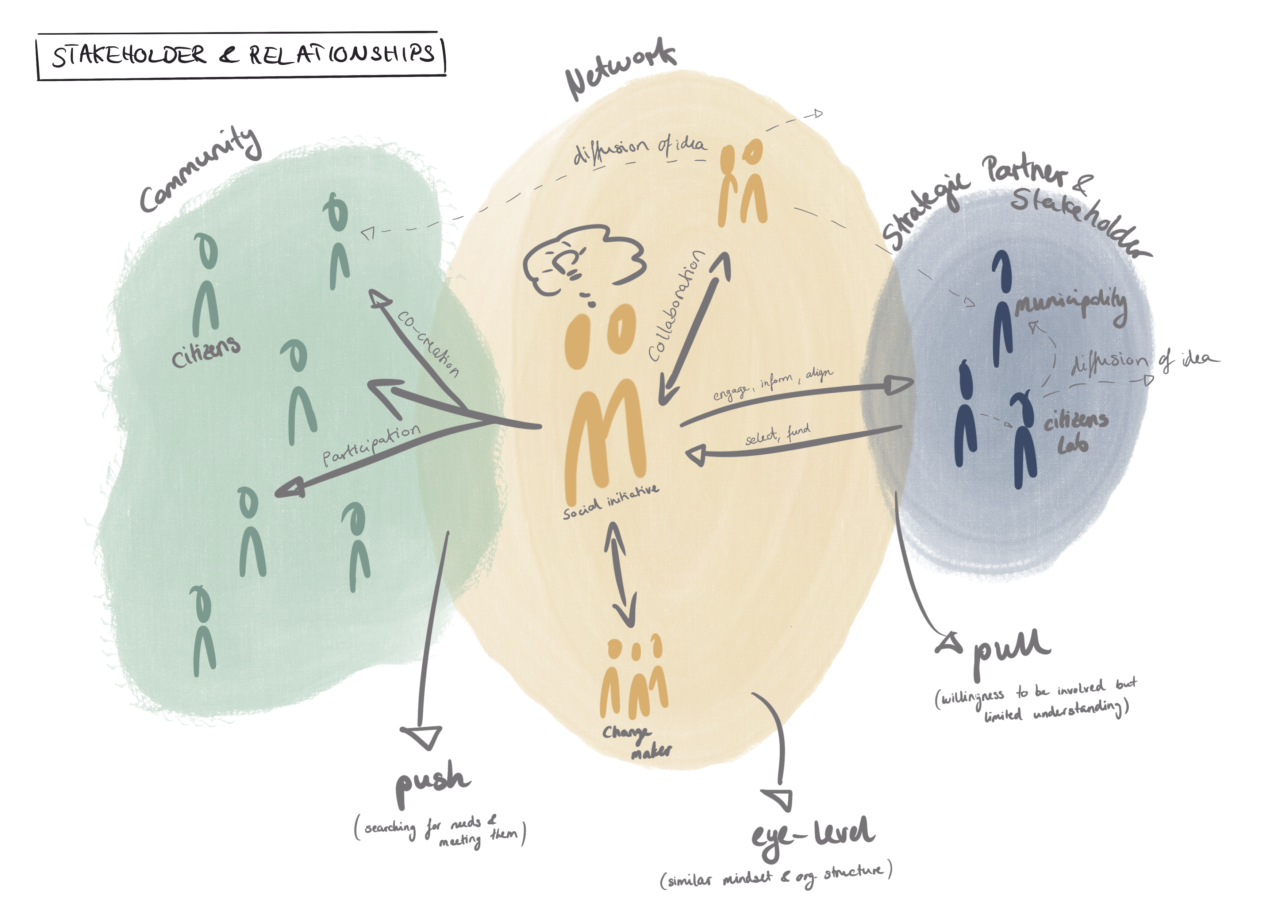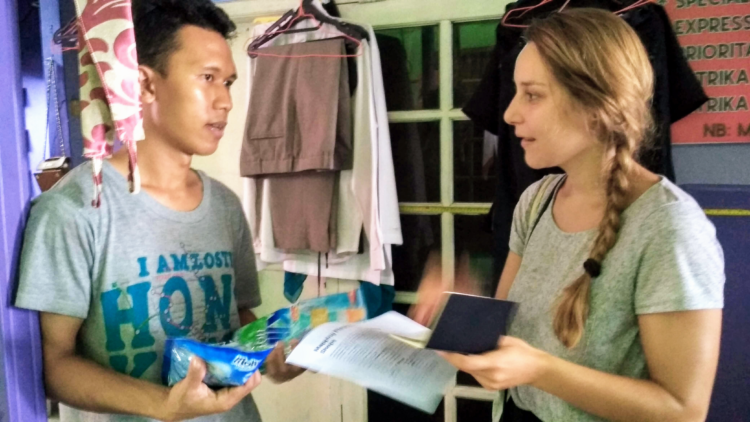Scaling Mindsets – Increase the Impact of Social Innovations

Design for society and value creation
What and how can design contribute to enabling sustainable transformation in society? Driven by this question, Maria is passionate about design for society and value creation. As an MSc Strategic Design Student, she likes to take a system perspective, look at the overall picture and understand connections, but also dive into the context and examine people’s needs and concerns. As the discipline of design evolves, so does the role of a designer. For Maria, ‘design for society’ means empowering, facilitating, mediating and involving people in co-design activities. She likes to work with the people who will be affected by the solution and with those who can influence the success of the solution.

What led Maria to PCM Lab?
Being interested in Social Innovation and design for Society, Maria participated in the course “Strategic Design for Social Innovation“ hosted by Ingrid Mulder and Alicia Calderon Gonzalez. In a visual essay, she examined how design tools and methods enabled the grassroots initiative Trink-Genosse to implement participatory principles in their cooperative and spread a participatory mindset among their members. This exploration and the exchange with her peers as well as with Ingrid and Alicia motivated her to initiate a graduation project in the PCM Lab. Thanks to the PCM Lab, she has been connected to Designscapes, an EU H2020 supported research consortium that aims to explore and support design-enabled innovations in urban environments, with which she is now collaborating on her graduation.

Triggering a shift in mindsets as a mean to create alignment.
“Once your mindset changes, everything on the outside will change along with it.” ― Steve Maraboli
In her final project, Maria examines how the impact of social innovations can be scaled. In particular, she is interested in understanding and disseminating the change in mindset to increase the impact of social initiatives on their environment (partners and stakeholders), and how design tools and methods can enable social initiatives to deliberately trigger mindset transformation and alignment. Therefore, she works with 5-10 social initiatives in different European countries, which scale their initiative from one context to another and are funded by Designscapes.
Researchers recognized that changing mindset is a great lever for change (e.g. Meadow, 2015). However, how this change can be achieved and made usable for social initiatives has hardly been researched in literature or practice. With her final project, Maria would like to understand how this gap can be closed and what role design (its tools and methods) can play.

Participation, facilitation and visual thinking
In order to bridge the gap, Maria wants to approach the challenge from two sides. She likes to combine a participatory research approach with theoretical knowledge. On the one hand, through knowledge from literature and on the other hand, through close cooperation with social initiatives. From the beginning, she involves the social initiatives in interactive research activities, interviews or creative sessions. She likes to dive into new contexts to understand the underlying problems and the system around. When developing solutions, she wants to involve multiple stakeholders in generating ideas and validating concepts in order to design a solution that everyone aligns with and can be implemented in the relevant context. Creative facilitation (remotely), visual thinking and empathy are her most important tools here.

Facilitating new ways of thinking for a sustainable transition
With her graduation project, Maria wants to develop an actionable result that social initiatives can easily implement in their daily work. The outcome is intended to help them express and trigger a change in the mindset of people inside and outside the social initiative to ultimately increase their impact on society.
She wants to find a way to get people to think and reflect on their way of thinking and be open to seeing and appreciating other perspectives. Maria strives to strengthen a sustainable mindset in society by helping social innovations to scale and increase their impact.
Meadows, D. H. (2015). Leverage Points: Places to Intervene in a System. In Thinking in systems: A primer (pp. 145-165). White River Junction, VT: Chelsea Green Publishing.
Written by Maria Belén Buckenmayer, the project is in collaboration with DESIGNSCAPES and supervised by Ingrid Mulder and Milene Guerreiro Gonçalves.